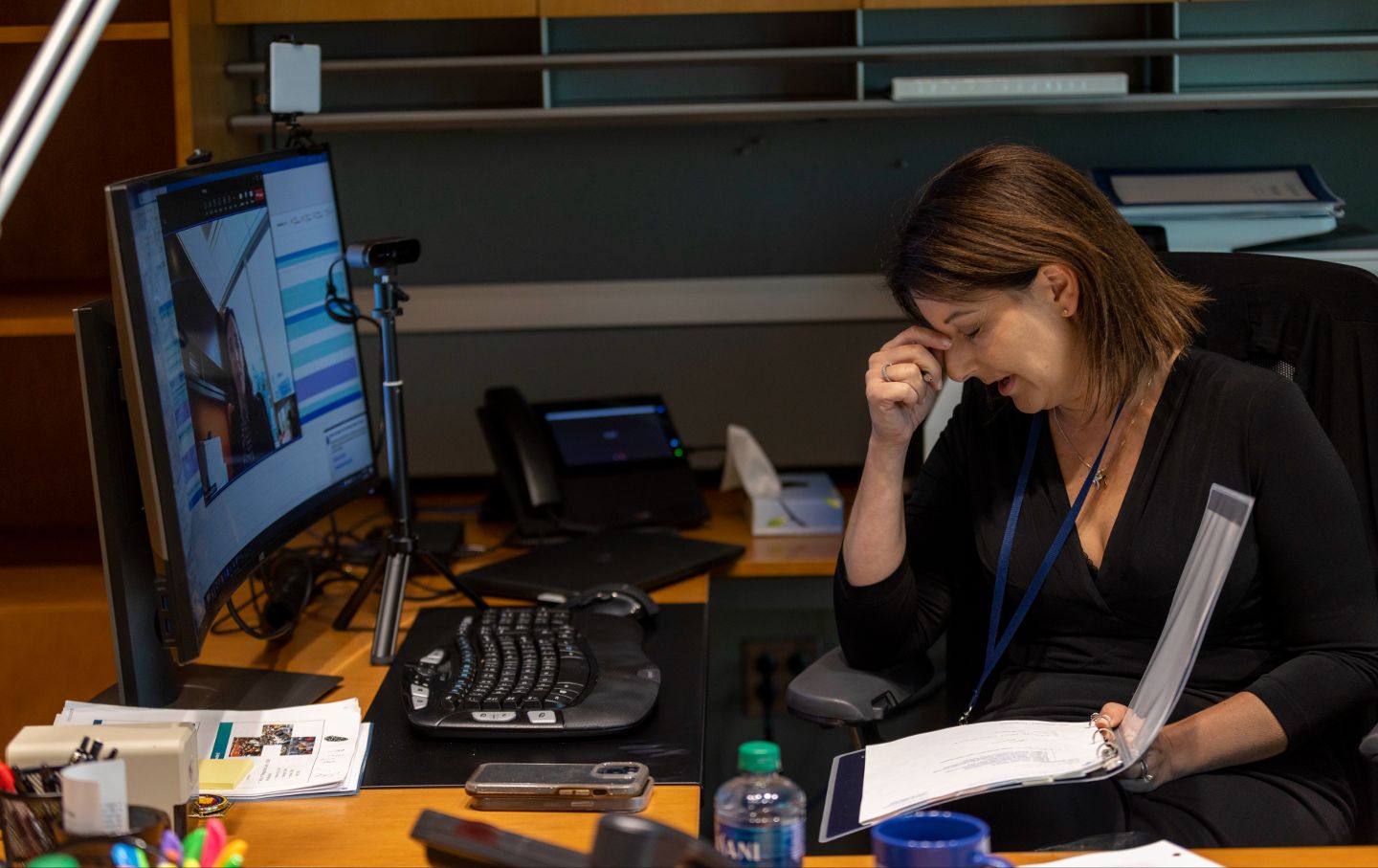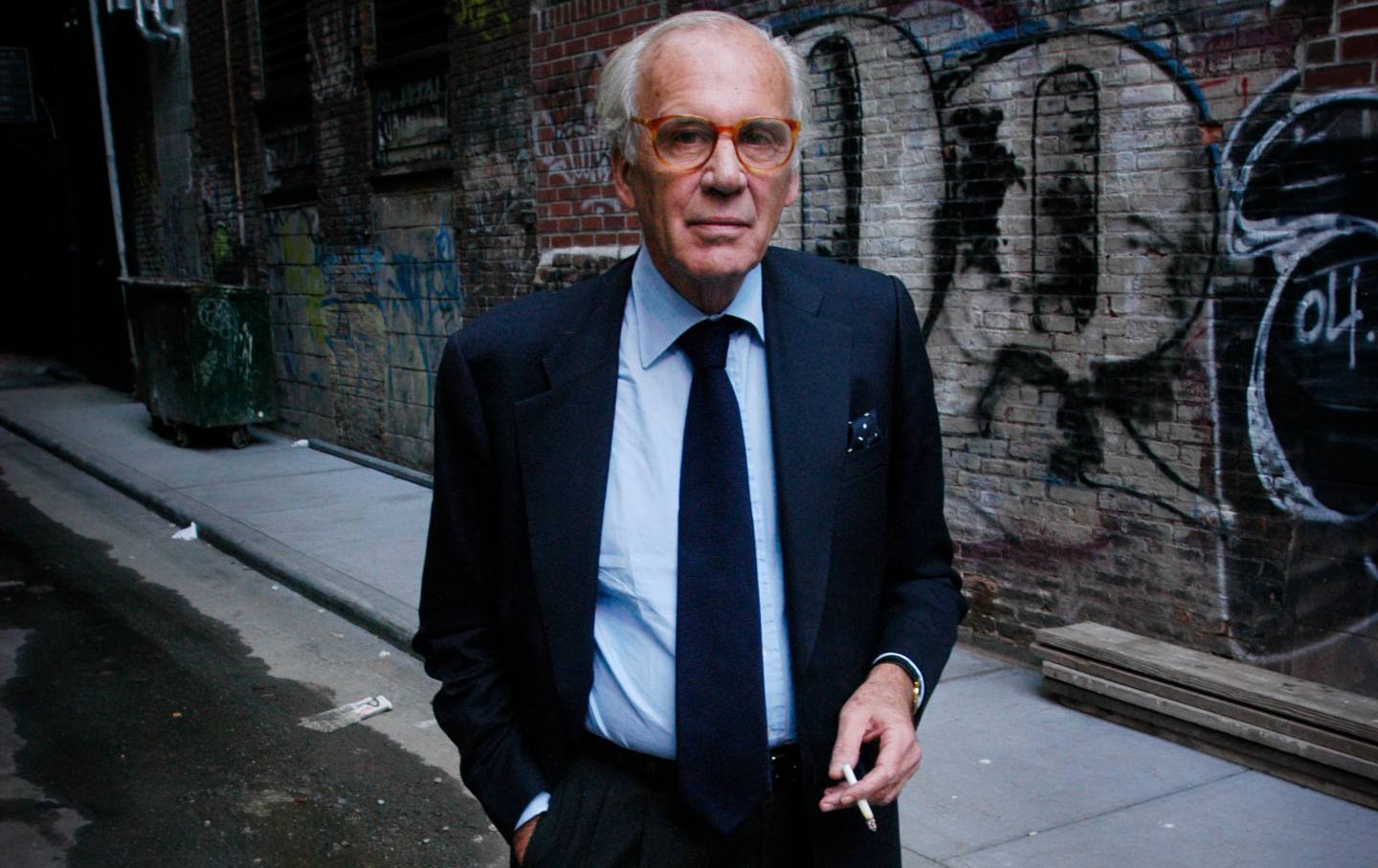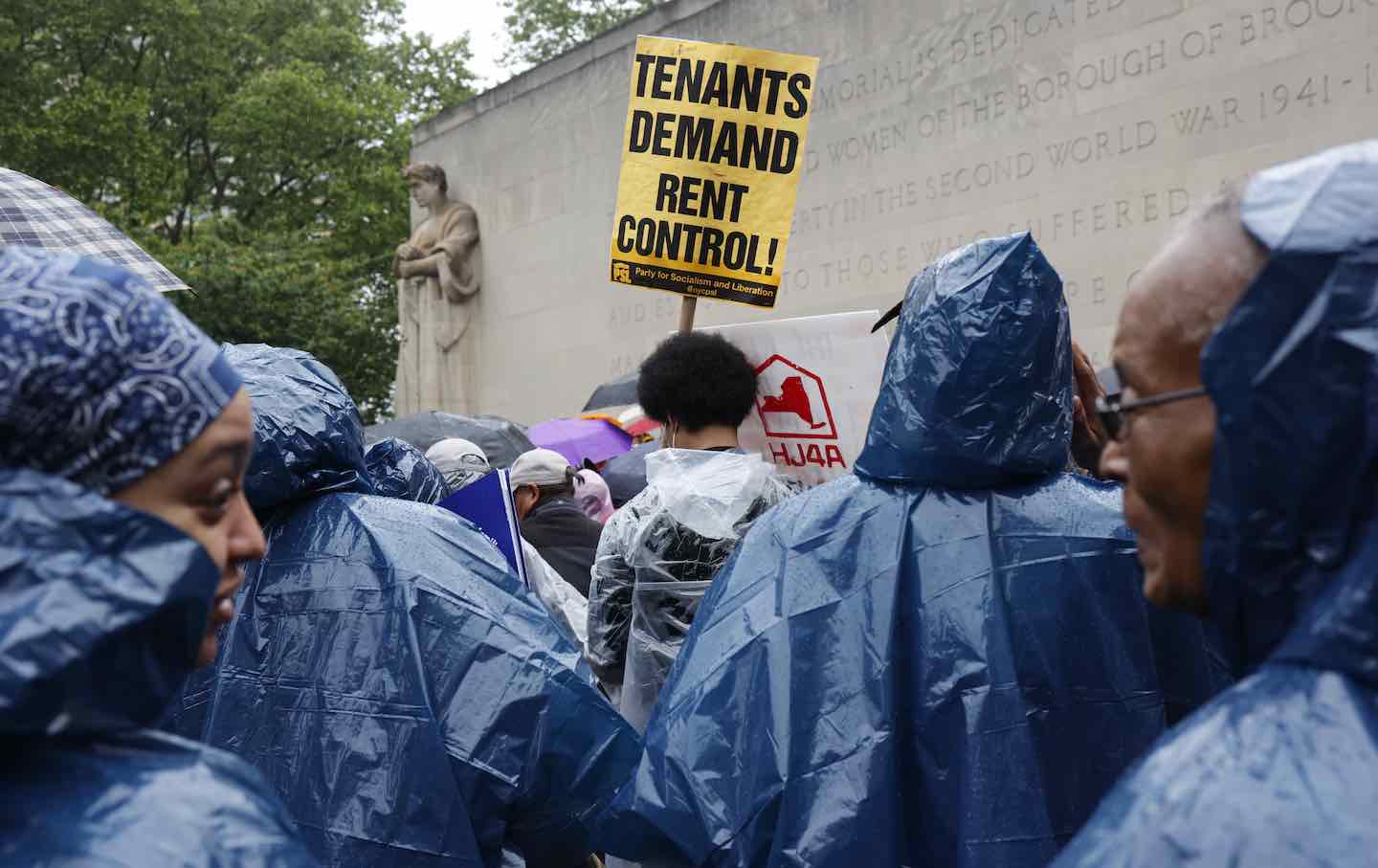We’re Letting a Public Health Disaster Unfold In Slow Motion
Republicans are working hard to destroy our public health infrastructure. Too many Democrats are helping them. It needs to stop now.

Centers for Disease Control and Prevention Director Dr. Mandy Cohen rubs her head while taking notes during her end-of-day check-in inside her office at the Centers for Disease Control and Prevention headquarters in Atlanta, Ga., on Thursday, September 21, 2023.
(Alyssa Pointer / The Washington Post via Getty Images)In 2022, Georgetown University political scientist Donald Moynihan wrote a piece on how to undermine the administrative state, with the Trump administration as his case study. As Moynihan told us, “No country becomes a world power without a capable public service.” Well, I’d like to offer a corollary: No country becomes healthy without a capable public health system.
As I’ve mentioned before, despite having at our disposal the most sophisticated medical tool kit, the United States trails its OECD peers in life expectancy rankings, listed between Croatia and Argentina in the most recent figures. While many factors may be responsible for this sorry showing, the lack of a robust, well-funded public health system is surely one of them. The weaknesses in American public health have been well-described elsewhere. To fix them, one needs to commit to doing so.
But there are troubling signs that what little public health infrastructure we already possess is under the same kind of threat as the broader administrative state. The people attacking public health are following the template that Moynihan raises more generally in his article, consisting of three basic strategies: delegitimization, deconstruction, and control. While the GOP may be the leaders of this political endeavor, the Democrats are at least accomplices, which raises serious questions about whether we will ever raise American life expectancy in this new century.
Efforts to delegitimize public health are widespread in the US, from governors, led by Ron DeSantis in Florida, members of Congress like Rand Paul, and conservative jurists, bankrolled by right-wing foundations and think tanks, who seek to roll back key public health powers, authorities, and programs, and who suggest that key scientists are part of conspiracies to hide the origins of Covid.
But some American liberals have also consistently undermined public health in the last few years, chiefly by setting themselves up as arbiters of the wisdom of Covid policy and relentlessly working to get Covid-related health measures rolled back. Others directly took on the collective nature of public health approaches to Covid, suggesting that this kind of vision was outdated and that individualized risk assessment and action should be paramount.
In a sad case of Stockholm Syndrome, many public health leaders, including CDC Director Mandy Cohen, have identified a need to regain the trust of the American people, while never admitting that that there is an active project to undermine the agency and public health in general. By ignoring the political machinations at work, public health plays into the hands of the right, by suggesting all these wounds to public confidence are self-inflicted.
Deconstruction—which Moynihan defines as “undermining administrative capacity and delivery of services, making it harder for institutions to deliver on democratic promises”—is also at work in public health. For instance, we are seeing a stark increase in sexually transmitted diseases in the US, yet the CDC is about to cut millions from STI control.
This is part of a larger set of budget cuts, stemming from negotiations between the White House and congressional Republicans, that are trickling down to states and localities for a range of public health services. Never mind the draconian cuts that the GOP would like to see at the CDC—what is happening now against the background of a perennially underfunded US public health system means the administrative and programmatic capacity of public health in America is anemic at best.
We expect public health to deliver, yet we’ve starved our institutions, either out of antipathy to their project to ensure the health and well-being of Americans, or, more mundanely, because our leaders simply don’t care—public health is at the bottom of their list of political priorities.
The last tool in undermining public health is control: where “loyalty to…political leaders is a primary virtue,” according to Moynihan. The interference in public health under the Trump administration was blatant and extreme. It was easy to criticize. Yet, after the Biden administration promised to “follow the science,” we saw the president’s political machinations take primacy over decisions at the CDC and the FDA, and the playbook followed since 2022 seems to hew to the advice of political consultants rather than public health experts. Jeff Zients, Biden’s first Covid czar, was clearly in charge of efforts against the pandemic and the White House centralized the response. The new CDC director, while well-qualified for her post, also has the added value of being someone in now-chief-of-staff Zients’s orbit from the Obama administration.
Delegitimization, deconstruction, and control. The three horsemen of our fate. We did terribly on Covid, and yes, part of the reason was that our fundamentals were weak, but our politics are also set up to undermine public health day after day. This has implications well beyond our ongoing debates about the pandemic. It’s about how we expect to survive and thrive in America, with this status quo. Current life expectancy numbers are a warning sign and it’s just getting worse. By 2040, we’re expected to decline further, with the largest drop in rankings in life expectancy among high-income nations. This is a disaster in slow motion, and we’re watching it unfold as bystanders.
Thank you for reading The Nation
We hope you enjoyed the story you just read, just one of the many incisive, deeply-reported articles we publish daily. Now more than ever, we need fearless journalism that shifts the needle on important issues, uncovers malfeasance and corruption, and uplifts voices and perspectives that often go unheard in mainstream media.
Throughout this critical election year and a time of media austerity and renewed campus activism and rising labor organizing, independent journalism that gets to the heart of the matter is more critical than ever before. Donate right now and help us hold the powerful accountable, shine a light on issues that would otherwise be swept under the rug, and build a more just and equitable future.
For nearly 160 years, The Nation has stood for truth, justice, and moral clarity. As a reader-supported publication, we are not beholden to the whims of advertisers or a corporate owner. But it does take financial resources to report on stories that may take weeks or months to properly investigate, thoroughly edit and fact-check articles, and get our stories into the hands of readers.
Donate today and stand with us for a better future. Thank you for being a supporter of independent journalism.








